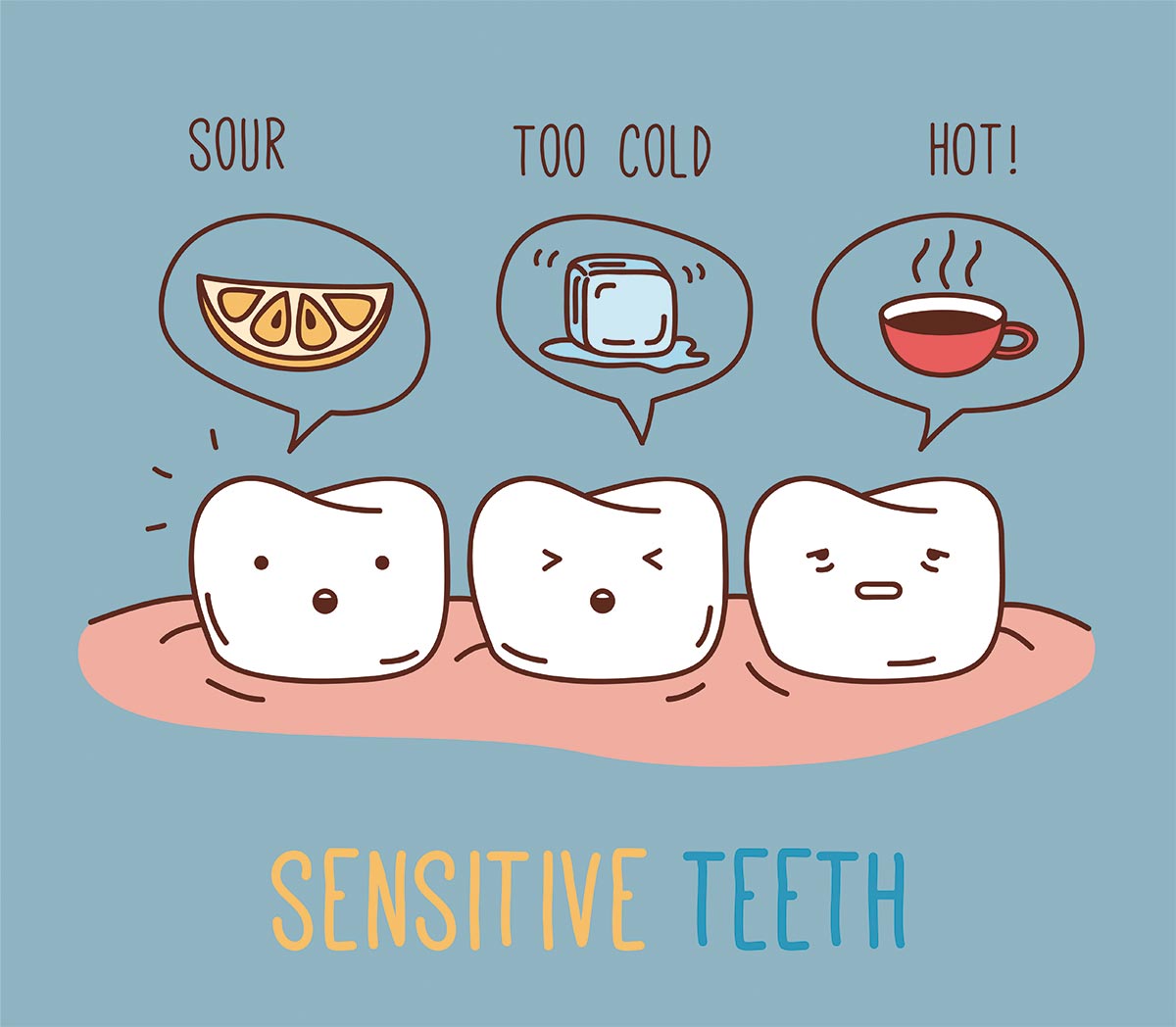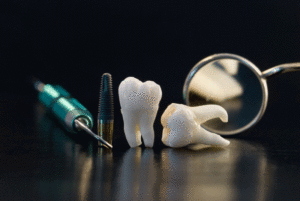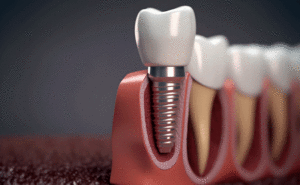Do you routinely experience tooth pain after certain activities? If so, then it’s likely that you have sensitive teeth. Sensitive teeth commonly result from worn down tooth enamel. This enamel serves as the protective shell of your teeth. With worn enamel, eating hot or cold foods, taking a deep breath of cold air and brushing your teeth may cause temporary pain or discomfort.
The first thing you should do when you realize you have sensitive teeth is see your dentist. They’ll be able to rule out any other contributing factors (i.e., tooth decay, gum disease, etc.) and recommend one or more treatment options to help manage or resolve the issue at hand. This post will take a closer look at some of the common treatment options for sensitive teeth.
Treatment Options for Sensitive Teeth
The good news is that sensitive teeth can be managed. Here’s a look at some of the products that can help do it:
- Desensitizing toothpaste: There are a variety of desensitizing toothpastes available for over-the-counter purchase. With regular use, these toothpastes work to help eliminate any pain or discomfort people experience from sensitive teeth.
- Fluoride: Fluoride helps to build and strengthen tooth enamel, so it can be a powerful ally in your quest to manage sensitive teeth. Fluoride is often administered in the dentist’s office, though prescription fluoride is also an option.
- Bonding: In some cases, your teeth may be sensitive because a root is exposed. If that’s the case, a bonding agent may need to be applied to protect the area.
- Switch your toothbrush: Do you use a hard bristled toothbrush? Or does the toothbrush you use have worn or frayed bristles? If so, there’s a good chance that your current toothbrush – and perhaps even your brushing habits – are contributing to your sensitivity issues. Switching up your toothbrush and getting a refresher on the right brushing technique can help.
- Root canal: In some cases, tooth sensitivity may turn into full-blown pain. If the pain becomes too severe, a root canal may be necessary. Though more extensive than a filling, root canals are now routine, pain-free procedures carried out at the dental office. They’re also a way to eliminate tooth sensitivity for the long term.
As you can imagine, the best way to avoid treatment for sensitive teeth is to see your dentist for a check up and professional cleaning at least twice a year. During these appointments, the levels of your tooth enamel can be assessed and action can be taken before things become a bigger issue. Additionally, proper brushing is essential, as is limiting your consumption of enamel-eroding acidic foods and drinks. For more information on tooth sensitivity, what causes it and what you can do about it, contact Caven Dental today.



